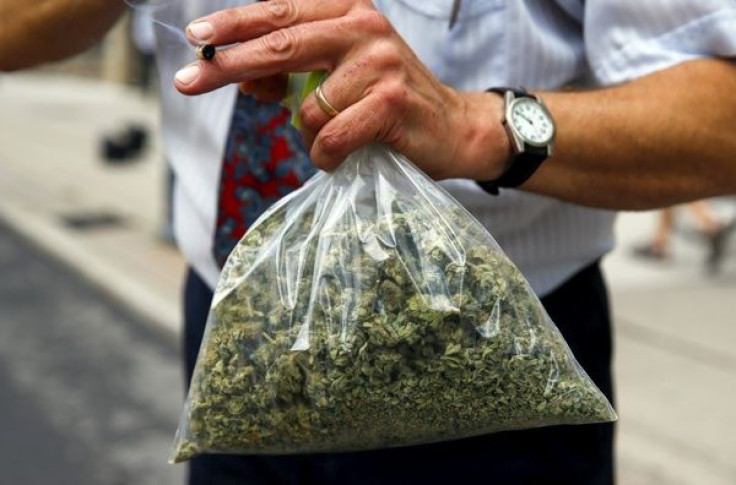Jeff Sessions Says He Will Enforce Federal Marijuana Laws In An 'Appropriate Way'

Attorney General Jeff Sessions said in a radio interview last week he would enforce federal marijuana laws in an “appropriate way.”
In a radio interview Thursday with Hugh Hewitt, the former Alabama senator shared his thoughts about ending the marijuana prohibition, which he made clear he has no interest in doing, and explained how opposing federal law and state laws was creating challenges in enforcement.
Read: Sean Spicer Vows 'Greater Enforcement' Of Federal Cannabis Laws
“Marijuana is against federal law, and that applies in states where they may have repealed their own anti-marijuana laws,” he said. “So yes, we will enforce law in an appropriate way nationwide. It’s not possible for the federal government, of course, to take over everything the local police used to do in a state that’s legalized it.”
Sessions, who noted he was “not in favor of legalization of marijuana” and that the plant was “more dangerous than a lot of people realize,” said the Justice Department was currently evaluating whether or not to prosecute states with legal marijuana under the Racketeer Influenced and Corrupt Organizations (RICO) Act.
Under RICO, the Justice Department could prosecute and impose civil penalties against states and individuals suspected of racketeering within a criminal enterprise, which, under federal law, could technically be applied to states and businesses allowing the sale and distribution of marijuana.
Read: What Will Happen To Legal Drug Laws At State Level?
However, Sessions said the department could need something heavier than just a RICO ruling to combat the friction created between state and federal marijuana laws.
“I think it’s a little more complicated than one RICO case, I’ve got to tell you. [In] places like Colorado, it’s just sprung up a lot of different independent entities that are moving marijuana. And it’s also being moved interstate, not just in the home state. And neighbors [Nebraska and Oklahoma] are complaining, and filed lawsuits against [Colorado]. So it’s a serious matter, in my opinion,” he said.
© Copyright IBTimes 2024. All rights reserved.












